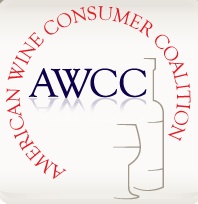
A report from a new organization gave Oregon a No. 1 ranking and awarded the state an A+ grade as friendliest to wine consumers, while Idaho was ranked No. 12 and Washington came in at No. 15.
The American Wine Consumer Coalition report rated all 50 states and the District of Columbia in terms of being friendly to wine drinkers. Seven states and the District of Columbia received an A+. Idaho was awarded a B for being a wine-friendly state, while Washington state showed up with a B-.
 There were 22 states that received a grade of D or worse from the organization launched earlier this summer. The group is based in Washington, D.C., and bills itself as “the only national advocacy group that works to advance the interests of America’s wine consumers.” Wine blogger Tom Wark serves as executive director of the American Wine Consumer Coalition.
There were 22 states that received a grade of D or worse from the organization launched earlier this summer. The group is based in Washington, D.C., and bills itself as “the only national advocacy group that works to advance the interests of America’s wine consumers.” Wine blogger Tom Wark serves as executive director of the American Wine Consumer Coalition.
“Oregon’s wine producers have worked hard in cooperation with the governor and the state Legislature to ensure that Oregon’s regulation of wine in the state is both responsible and supports our thriving wine industry,” Leigh Bartholomew, chair of the Oregon Wine Board, said in a news release.
The American Wine Consumer Coalition graded each state on categories such as direct shipments, ability to buy wine in a grocery store, sale of alcohol on Sunday, limited access because of state regulations, and the option of a diner bringing a bottle of previously purchased wine into a restaurant.
“Oregon possesses the most consumer friendly wine laws in the nation,” the report said.
There was no mention in the report regarding the recent passage of the Oregon Wine Growler bill. That new law permits wine shops, grocers, wine bars and restaurants to offer wine on tap and sell bulk wine to go — just as brewpubs and taverns sell beer in growlers.
Washington, the nation’s second-largest state in terms of wine production, got marked down on the report for its retailer-to-consumer shipping policy. However, that policy is not as restrictive as its report card indicates. Websites of Esquin Wine & Spirits in Seattle and Total Wine & More allow for the shipment of international wines to residents of Washington state.
Idaho was described in the AWCC report as “among the top ranked states for wine consumer friendliness, failing only by blocking consumers from bringing their own wine into dining establishments.”
However, a number of restaurants in the state welcome diners to bring wine from their own cellar. For example, the award-winning Red Feather Lounge in downtown Boise — just a few blocks from the state Capitol — has its corkage policy posted on its website. The acclaimed Cottonwood Grille also mentions “personal wines welcome” on its Open Table site.
Regardless of the grades, the Pacific Northwest ranks as perhaps the most wine-friendly region in the country. And according to the AWCC, there are much worse places to be a wine drinker.
“If you’re a wine consumer, it’s best to avoid living in states like Massachusetts, Pennsylvania, Indiana, Kentucky, and Delaware,” according to the report. Those states received an “F” for their laws regarding wine sales and consumption.
“Eighty years after the end of Prohibition, consumers in numerous states still live under archaic laws that disregard their interests,” said David White, president of the AWCC. “These laws harm consumers and enrich special-interest groups.”
Its findings indicate:
- 36 states ban the shipment of wines from out-of-state retailers, which prohibits consumers from buying some imported wines and joining most wine clubs.
- 11 states ban all wine shipments — domestic and imported — from other states.
- 17 states ban wine sales in supermarkets
- 15 states have laws on the books that ban guests from bringing private bottles to restaurants and do not allow for corkage policies
- Two states, Pennsylvania and Utah, control the sale and distribution of wine. Washington was on that list until a 2011 statewide initiative went into effect last year.

Just a note about retailer to consumer wine shipping in the state of Washington. The state bans consumers from having any wine shipped to them from out of state retailers and wine stores, while allowing in-state stores to ship to WA consumers.
The problem this causes is that retailers in WA only have access to very small percent of the wines available in the American Marketplace and can only offer this small percent of wines to consumers, whether shipped or not. And by barring out of state retailers from shipping into the state, this means consumers have NO ability to have imported wines shipped to them that do not already exist in the state. Only wine stores sell imported wines.
Washington lawmakers have at at least twice considered changing the law. In every case the Washington Wine Institute opposed allowing consumers to purchase and have wine shipped to them from out-of-state wine stores.
Thanks, Tom. That’s much more clear to us.
(That said, I’m positive I’ve purchased wine from a California wine shop and had it shipped here to Washington. Someone broke the law …)